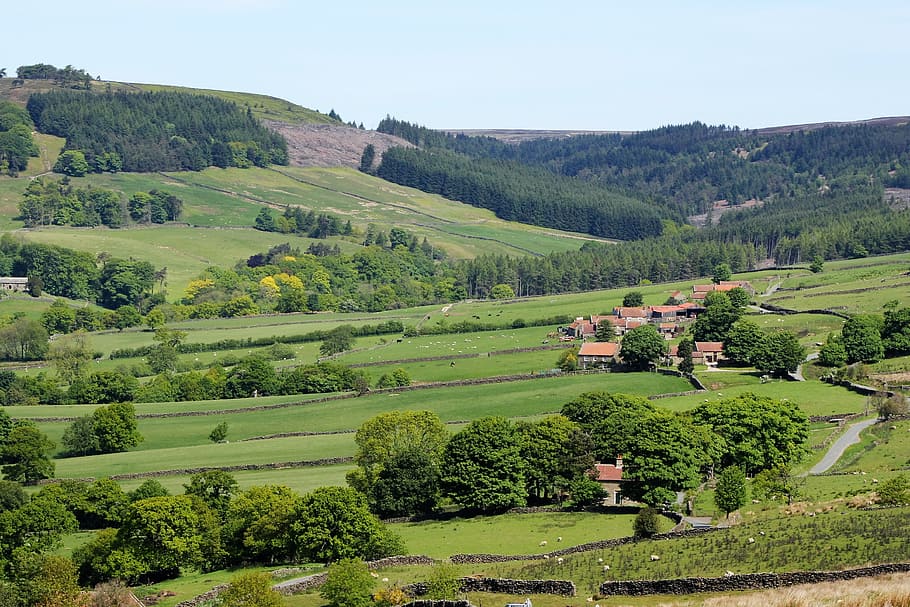Caroline Voaden MP calls for increased funding for rural areas
Caroline Voaden is the Liberal Democrat MP for South Devon
Think of the countryside and what do you see? Rolling verdant fields dotted with sheep. Narrow lanes. Tractors. Farms. Hills offering expansive views uninterrupted by anything man made.
What I’m guessing you won’t see are the hidden pockets of deep deprivation, and you won’t see them in the data, either.
The Index of Multiple Deprivation, which is used to capture need for core Local Authority services, is urban-centric and woefully out of date. All it takes is one or two very wealthy residents to skew the figures for an entire settlement.
So, the utopic vision for the countryside persists. The fields. The greenery. The space. The simple life.
But here’s the truth: deprivation is not only present in the countryside, it’s pernicious, and it’s growing.
A lot of this can be traced back to austerity. Back then, public services were slashed, shops forced to shut, and school budgets were cut.
These days in rural areas if you don’t have a car, you can’t get to work. Getting to and from the Job Centre can take an entire day. Socialising and part-time jobs for young people are made impossible where bus services don’t exist. And while the employment rate may be lower than in the cities, people often earn less, and many are self-employed.
In my constituency of South Devon, the picture is much the same. Today, there are only two banks in South Devon left open in an area of around 450 square miles. Many post offices are closing too, despite providing an essential service, particularly for older people who don’t drive and need postage and banking services.
In many places, bus services don’t exist, and taxis are prohibitively expensive – it can cost £150 for some in South Devon to do a round trip to their nearest hospital. And the proportion of rural premises with access to gigabit-capable broadband is nearly half that of urban areas.
All this before we get to the toughest challenge of all: housing.
House price growth in rural areas is outstripping towns and cities. Between December 2018 and December 2023, average house prices in predominantly rural areas increased by 22%, compared to 17% in urban ones. And, as a result, the average house price in South Devon is now 14x the average salary at £425,000.
The Government is clearly alive to this crisis, but its solution for it, to build 1.5m new homes, is a blunt and ineffective approach. Currently, Labour has hired 6 volume housebuilders to fulfil its ambition, but they’ve offered no incentives for them to prioritise social housing.
So, even if the Government can build all the homes they’ve promised, there’s no guarantee housing will become any cheaper. In fact, one study suggested building 300,000 homes every year for the next two decades would bring prices down by just 10%.
That’s a terrible result for the countryside because, here, the housing crisis isn’t just impacting people who want to get on the property ladder, it’s crippling our local services, too.
Because they bought their homes before housing became so expensive, locals who can afford to stay in villages are often older. Their children must move somewhere more affordable, and retirees move in.
The net result is an ageing population which is more reliant on the very services we are struggling to staff. Since my election, I’ve visited schools, hospitals, hospices, and fire stations, and every single one told me they are struggling to recruit. People cannot afford to live here, and our public services are struggling to cope as a result.
You’d hope all this is obvious enough for the Government to act, but, if you look at the distribution of funding, it appears not. Spending power in predominantly urban areas currently stands at £573.51 per head, compared to £407.32 in rural ones.
Urban councils get a huge 41% more per head than rural ones, despite council tax being on average 20% higher in rural areas.
This imbalance was a trend started by the Conservatives, but Labour has picked up from where they left off.
In March, the Government announced its Plan for Neighbourhoods Scheme, i.e. its version of ‘levelling up’. Under the Scheme, 75 areas across the UK will receive up to £20m to support high street regeneration, local services, and public spaces.
I can think of more than one town in the South West which could hugely benefit from this, but unfortunately, the Government only selected one town from the entire region, compared to 13 in the North West.
I recently led a Westminster Hall debate on Government support for rural communities, where I asked the Minister for Rural Affairs to reconsider this allocation and to reverse cuts in rural funding and service delivery grants.
Having moved to Devon 18 years ago, it’s become clear to me how deep the rural/urban divide is. Closing it would benefit the entire country. A recent study claimed levelling up town and country policy could generate an extra £43bn/year in England alone. If this Government is truly committed to growth, I’m sure it would want to unlock these extra funds.
Left Foot Forward doesn’t have the backing of big business or billionaires. We rely on the kind and generous support of ordinary people like you.
You can support hard-hitting journalism that holds the right to account, provides a forum for debate among progressives, and covers the stories the rest of the media ignore. Donate today.




